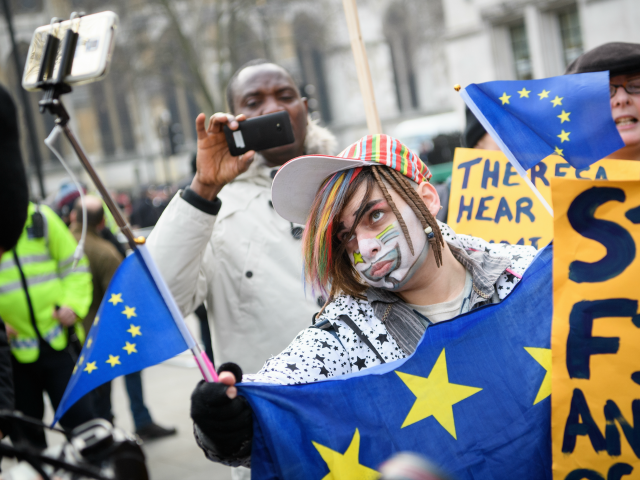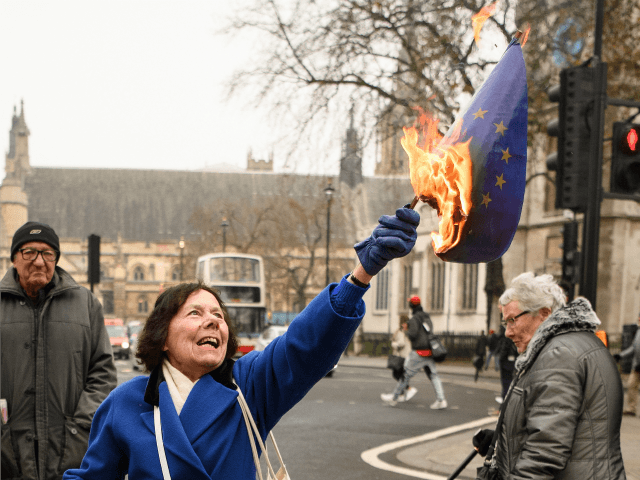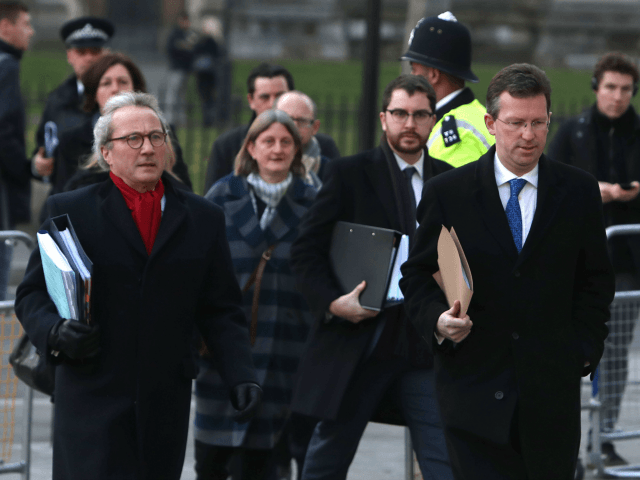The government’s barrister has asserted the right of the government to trigger Brexit as the four days of hearings for the Supreme Court case came to a close.
As protests continued outside the court house on Parliament Square, First Treasury Counsel James Eadie QC today defended the government’s right to begin Brexit proper, and the legislation and votes already passed in parliament gave it the right to do so.
Speaking this afternoon on these laws, Eadie referred to the 2015 European Referendum Act which left the Royal Prerogative powers on Brexit with the government, not parliament. Building on this, while he accepted that the EU referendum had no legal force and was technically non-binding, nevertheless it and the Brexit vote last night “is legally significant”.
Mr. Eadie said the government had the right to repeal international treaties without a vote through the Royal Prerogative because the government was not unilaterally repealing UK primary legislation, which would require a vote.
Speaking for the ‘People’s Challenge’ group who oppose Brexit, Helen Mountfield QC disputed Mr. Eadie’s points and insisted parliament had primacy over ministers in this case.
The Supreme Court is deliberating whether the British government will be able to trigger Brexit without having to go to Parliament for permission. It is feared by some that rebel MPs could use this opportunity to block the United Kingdom leaving the European Union, as mandated by the 2016 referendum.
Richard Gordon QC, acting against the government, said to not go back to Parliament to confirm what the citizens of the United Kingdom had already voted
On the first day of proceedings, government lawyer James Eadie QC said it was clear ministers could trigger Brexit after the referendum, urging the Supreme Court to make a decision the “ordinary man and woman” would understand.
Court president Lord Neuberger replied by insisting the judges would consider issues impartially and decide the case according to the law.
On day two, the lawyer acting against the government said the “political significance” of June’s vote was “irrelevant” and the result did not give ministers the power to trigger Brexit without consulting Parliament first.
On day three, the Scottish government had its say. Scotland’s top legal officer Lord Advocate James Wolffe claimed the Scottish Parliament’s consent would also be needed before the UK could begin leaving the EU.
However today, day four, the court heard the Welsh Government had no intention to stop Brexit and accepted the referendum result.
The Welsh Government’s lawyer, Richard Gordon QC, said: “We have absolutely no quarrel with the vote – it is a United Kingdom vote and it’s a majority for the implementation of Brexit.”
Having now heard evidence from all sides, the Supreme Court is expected to make their ruling in January – just ahead of the April deadline for triggering Brexit as voted on in the House of Commons on Wednesday night.
Liam Deacon contributed to this report.



COMMENTS
Please let us know if you're having issues with commenting.